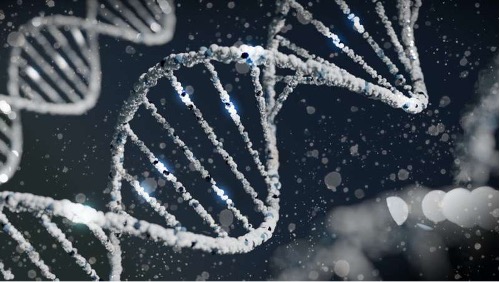Study reveals unique molecular machinery of woman who can’t feel pain
May 25, 2023
Source: drugdu
 238
238

The biology underpinning a rare genetic mutation that allows its carrier to live virtually pain-free, heal more rapidly and experience reduced anxiety and fear, has been uncovered by new research from UCL.
The study, published in Brain, follows up the team's discovery in 2019 of the FAAH-OUT gene and the rare mutations that cause Jo Cameron to feel virtually no pain and never feel anxious or afraid. The new research describes how the mutation in FAAH-OUT "turns down" FAAH gene expression, as well as the knock-on effects on other molecular pathways linked to wound healing and mood. It is hoped the findings will lead to new drug targets and open up new avenues of research in these areas.
Jo, who lives in Scotland, was first referred to pain geneticists at UCL in 2013, after her doctor noticed that she experienced no pain after major surgeries on her hip and hand. After six years of searching, they identified a new gene that they named FAAH-OUT, which contained a rare genetic mutation. In combination with another, more common mutation in FAAH, it was found to be the cause of Jo's unique characteristics.
The area of the genome containing FAAH-OUT had previously been assumed to be "junk" DNA that had no function, but it was found to mediate the expression of FAAH, a gene that is part of the endocannabinoid system and that is well-known for its involvement in pain, mood and memory.
In this study, the team from UCL sought to understand how FAAH-OUT works at a molecular level, the first step towards being able to take advantage of this unique biology for applications like drug discovery.
This included a range of approaches, such as CRISPR-Cas9 experiments on cell lines to mimic the effect of the mutation on other genes, as well as analyzing the expression of genes to see which were active in molecular pathways involved with pain, mood and healing.
The team observed that FAAH-OUT regulates the expression of FAAH. When it is significantly turned down as a result of the mutation carried by Jo Cameron, FAAH enzyme activity levels are significantly reduced.
Dr. Andrei Okorokov (UCL Medicine), a senior author of the study, said, "The FAAH-OUT gene is just one small corner of a vast continent, which this study has begun to map. As well as the molecular basis for painlessness, these explorations have identified molecular pathways affecting wound healing and mood, all influenced by the FAAH-OUT mutation. As scientists it is our duty to explore and I think these findings will have important implications for areas of research such as wound healing, depression and more."
The authors looked at fibroblasts taken from patients to study the effects of the FAAH-OUT-FAAH axis on other molecular pathways. While the mutations that Jo Cameron carries turn down FAAH, they also found a further 797 genes that were turned up and 348 that were turned down. This included alterations to the WNT pathway that is associated with wound healing, with increased activity in the WNT16 gene that has been previously linked to bone regeneration.
Two other key genes that were altered were BDNF, which has previously been linked to mood regulation and ACKR3, which helps to regulate opioid levels. These gene changes may contribute to Jo Cameron's low anxiety, fear and pain.
Professor James Cox (UCL Medicine), a senior author of the study, said, "The initial discovery of the genetic root of Jo Cameron's unique phenotype was a eureka moment and hugely exciting, but these current findings are where things really start to get interesting. By understanding precisely what is happening at a molecular level, we can start to understand the biology involved and that opens up possibilities for drug discovery that could one day have far-reaching positive impacts for patients."
Journal information: Brain
By editorRead more on
- The first subject has been dosed in the Phase I clinical trial of Yuandong Bio’s EP-0210 monoclonal antibody injection. February 10, 2026
- Clinical trial of recombinant herpes zoster ZFA01 adjuvant vaccine (CHO cells) approved February 10, 2026
- Heyu Pharmaceuticals’ FGFR4 inhibitor ipagoglottinib has received Fast Track designation from the FDA for the treatment of advanced HCC patients with FGF19 overexpression who have been treated with ICIs and mTKIs. February 10, 2026
- Sanofi’s “Rilzabrutinib” has been recognized as a Breakthrough Therapy in the United States and an Orphan Drug in Japan, and has applied for marketing approval in China. February 10, 2026
- Domestically developed blockbuster ADC approved for new indication February 10, 2026
your submission has already been received.
OK
Subscribe
Please enter a valid Email address!
Submit
The most relevant industry news & insight will be sent to you every two weeks.



